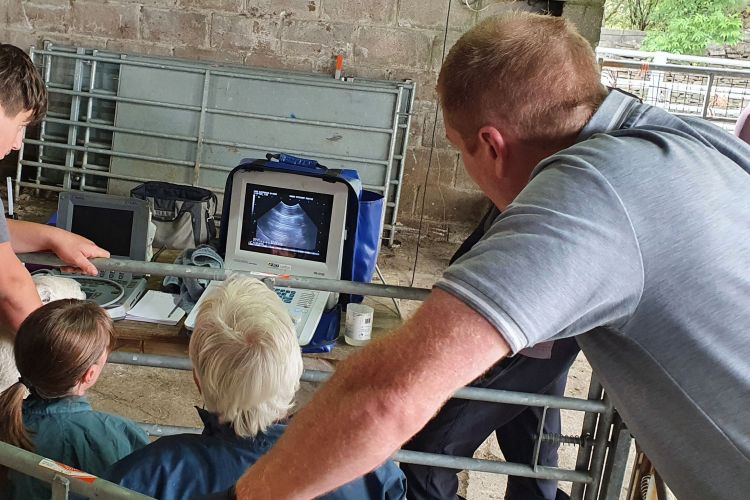
An industry project is seeking to upskill livestock vets to better diagnose and support Welsh farmers keen to tackle a debilitating sheep lung disease.
The Stoc+ programme is focusing on ovine pulmonary adenocarcinoma (OPA), sometimes called ‘Jaagsiekte’ - a disease which has devastating consequences in sheep flocks.
Caused by a virus that affects the lungs, OPA can be transmitted between ewes through nose-to-nose contact.
The Welsh government funded Stoc+ scheme seeks to bring farmers and vets together to help Wales lead the way in promoting animal health and welfare.
Thanks to the development of ultrasound examination of sheep lungs by specialist trained vets, Stoc+ has now given vets the opportunity to upskill and share vital knowledge to tackle this disease.
In addition to formal training sessions supported by Hybu Cig Cymru – Meat Promotion Wales this year, there was an opportunity to offer mentoring to a vet practice.
Roger and Ceri Squire from Tylacoch Farm, in Bridgend, recently invited experienced vet Rosie Gibson from Honddu Veterinary Practice to scan their flock with vet, Siân Fuller, from South Wales Farm Vets, mentored during the farm visit.
“We have had three animals showing symptoms of OPA in the last few years,” explains farmer Ceri Squire who works in partnership with her husband Roger.
“When we heard that Stoc+ could support us in bringing vets in, we were keen to get cracking. Offering our flock up to two vets, with an experienced vet mentoring the other was a win win situation for us.”
Vet Rosie Gibson used her ultrasound diagnostic skills on the flock of over 200 at the Squire’s farm to check the sheep’s overall lung health.
Giving second vet, Siân, on-hand advice and practical experience to recognise OPA problems will prove vital to her, as she progresses and further develops her skills.
During the visit one ewe showed some symptoms of OPA. The ewe was separated from the flock and sent for culling.
“We’ve made the decision following the advice from the vets on site, that we will now scan annually," Siân said.
"We will also scan our two year old rams before the breeding sales commence and will also cull any lambs from any infected ewes, as evidence suggests close transmission from mother to lamb is high.
“It is a debilitating disease, and the sooner we omit it from our flock, the better is it for the welfare of our animals and the efficiency of our farm business."
Heather McCalman, from Stoc+, said she was pleased to see the scheme enabling cross practice mentoring for vets in a specialist area like OPA.
"This disease can have a serious effect on farm businesses so eradicating it from the sheep flock is a positive step.
“Sharing knowledge from vets to farmers empowers farm businesses to tackle issues early, and year on year, ensures that any recurrence is dealt with swiftly."
